What’s the difference between “resting” in French and “relaxing” in English?
Oct 13, 2025“J’ai resté beaucoup ce weekend.”
Congratulations if you spot the deliberate error.
When you stay at home and relax, do you use this little phrase?
Thankfully, most French people will put you right. But what if you got it right the first time?
This phrase is a common ‘false friend’ where you say this because you’re in your ‘English brain’.
So get into your French brain and tune in to this brief explanation of this one, and other false friends.
Just because you stayed at home doesn’t mean you spent the time relaxing.
Today you will discover:
- The huge difference between “rester” in French and “rest” in English
- Even more false friends to stop you getting mixed up!
- Nifty ways to make sure you don’t forget.
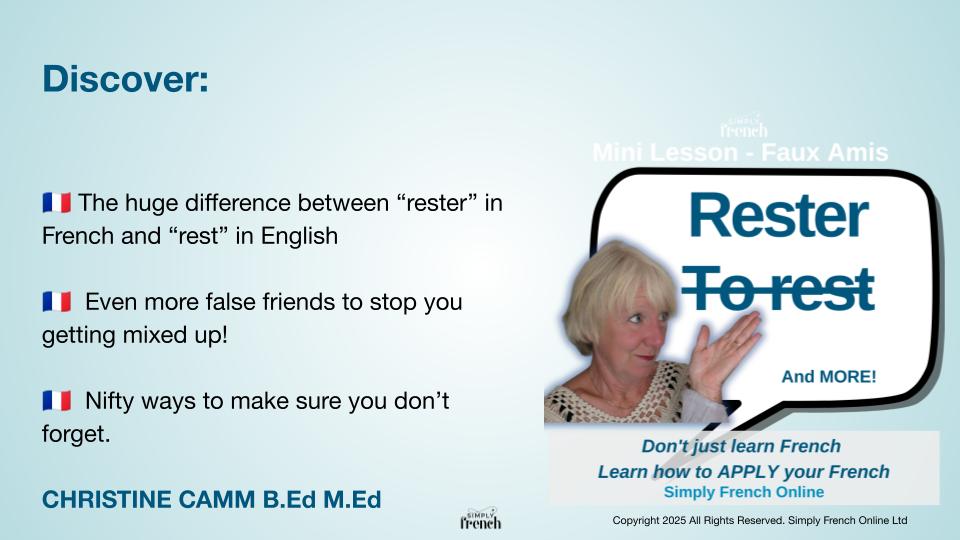
“Rester” and “Rest” are two different things.
So many students make this mistake because they look the same. Yet, they are not related at all:
- se reposer >>> to rest
- rester >>> to stay
Let’s see these verbs in context:
- On va tous se reposer ensemble ce week-end. >>> We’ll all relax together this weekend.
- On peut rester à la maison et se reposer. >>> We can stay at the house and relax.
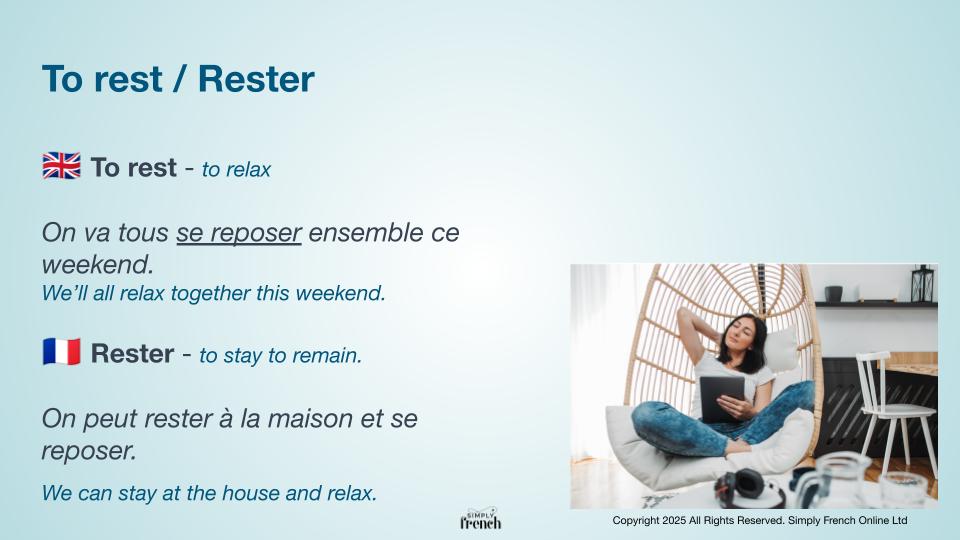
The two verbs also do not share any link:
- empêcher>>> to prevent
- prévenir >>> to warn
Here’s a way to use them:
- Le mauvais temps m’a empêché de sortir. >>> The bad weather prevented me from going out.
- Tu aurais pu me prévenir de la tempête. >>> You could have warned me about the storm.
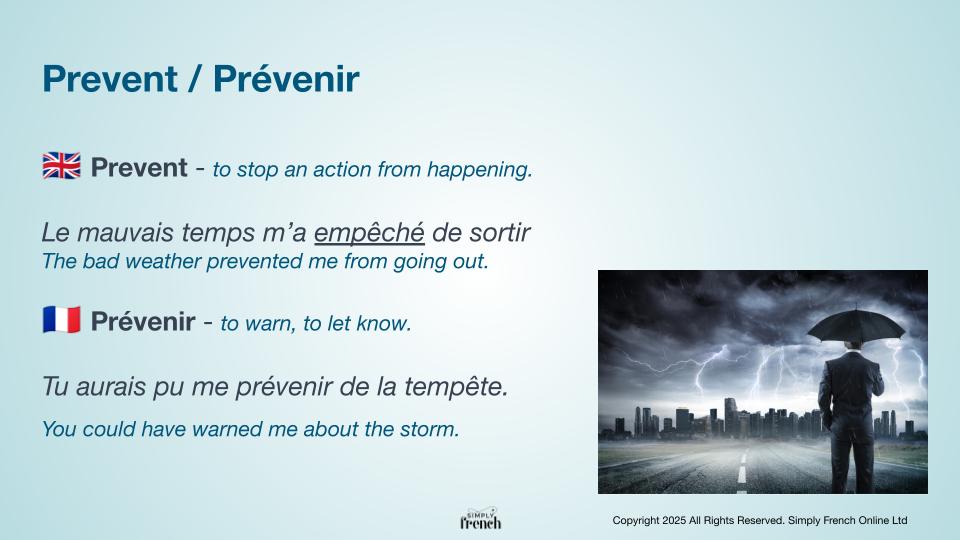
They embody the definition of false friends:
- une course >>> a race
- une race >>> a breed of an animal
Some illustrations for you:
- Il y a une course de chevaux demain. >>> There’s a horse race tomorrow.
- La race de mon chien est un labrador noir. >>> The breed of my dog is a black labrador.

These two are pretty close. Yet, they differ a lot:
- reprendre >>> to resume
- résumer >>> to summarise
Here is how to use them:
- Tu veux reprendre le travail demain ? >>> Do you want to go back to work tomorrow?
- Bonjour- je vous ai résumé la liste des tâches. >>> Hello, I’ve made a résumé of your job list.
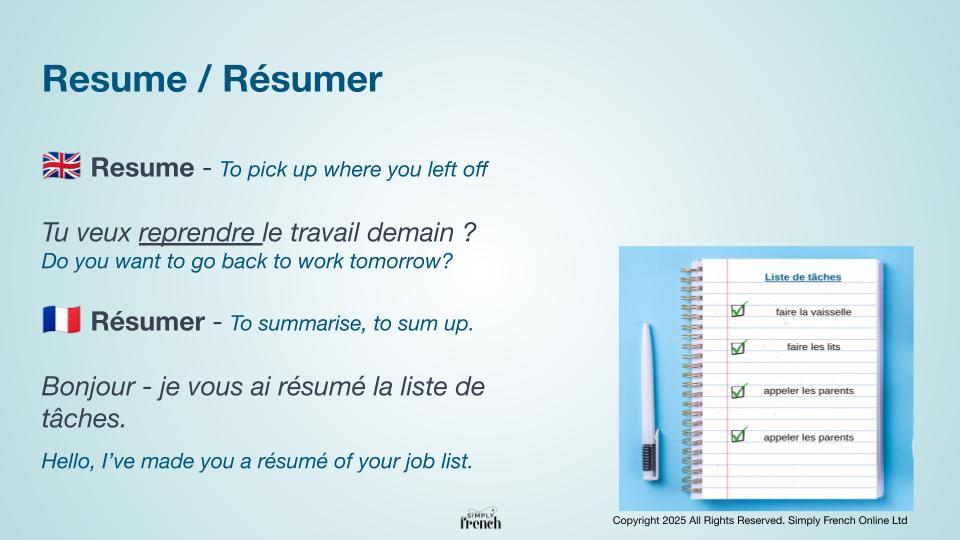
Tips to learn false friends in French.
To start with, choose one thing at a time and master it. Once you do, you can add more to your list.
Then, say it aloud to memorise it.
The word is not enough. Indeed, if you put it into context with your own example it will facilitate.
Then, you want to practise as much as possible or you will forget it.
In a nutshell, there is no need to learn a lot. You would better apply your learning in order to speak French simultaneously with confidence.
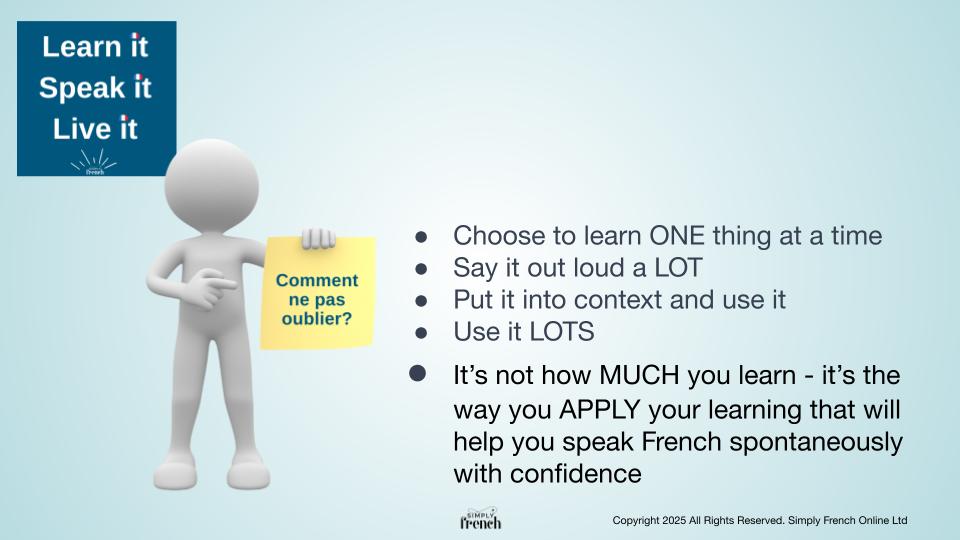
In this mini-lesson, you have covered the following false friends:
- se reposer >>> to rest vs rester >>> to stay
- empêcher>>> to prevent vs prévenir >>> to warn
- une course >>> a race vs une race >>> a breed of an animal
- reprendre >>> to resume vs résumer >>> to summarise
Are you interested in learning more about false-friends? You may be interested in this mini-lesson:
What’s the difference between “Location” in French and “hiring” in English?
What’s the difference between “Habiter” in French and “habits” in English?
Do you know other false friends?
Free Masterclass
Learn my 4 step method of how to hold meaningful french conversations the R.E.A.L. way in just 30 minutes a day.
When you signup, we'll be sending you weekly emails with additional free content

